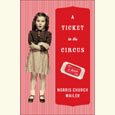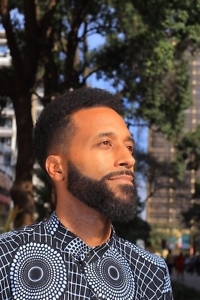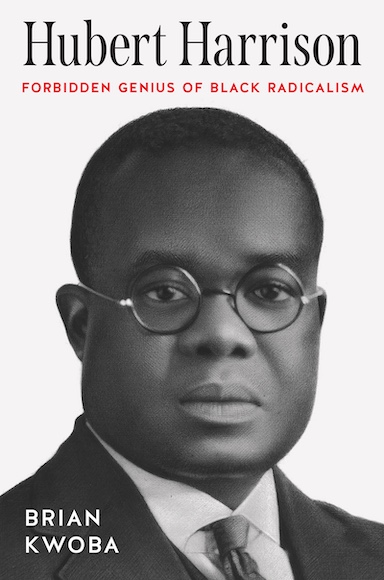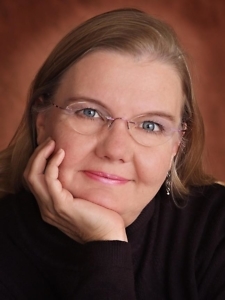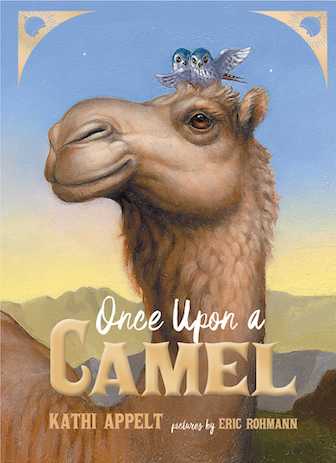Writing the World
Kate Daniels talks with Chapter 16 about her new poetry collection, A Walk in Victoria’s Secret
Poet Kate Daniels recently published her much anticipated fourth collection, A Walk in Victoria’s Secret. A professor in Vanderbilt’s creative-writing program, Daniels has received numerous honors, including the 2011 Hanes Award for Poetry, which has been given by the Fellowship of Southern Writers to the South’s pre-eminent poets, such as Yusef Komunyakaa and Ellen Bryant Voigt. Daniels has also been featured in Best American Poetry 2008 and 2010 and has published scholarly books on Robert Bly and Muriel Rukeyser in addition to her three other poetry collections, The White Wave, The Niobe Poems, and Four Testimonies. She recently answered questions about her work via email.
Chapter 16: Many of your poems focus on intensely personal and familial subjects. Granted, each book approaches these subjects with a different lens—The Niobe Poems, for examples, addresses your nephew’s drowning through Greek myth. How would you characterize the difference between your latest collection and your past collections? Are there stylistic changes? Thematical ones? Perhaps both?
Daniels: In certain ways, this one is, overall, “darker” than the others—although my work is pretty dark, anyway. But Vic (as I call it) keeps returning to themes of aging, mortality, trauma, a lot of really, really bad situations around race, violence, poverty, etc. I’ve always been pretty obsessed by what people come up with to get through the difficulties of their lives. Also, I think there was more levity in the earlier volumes, ultimately. Here, there is hardly any once you get past the first few poems. As my husband likes to joke, “Another bestseller!”
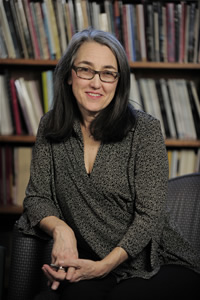 Chapter 16: As I read A Walk in Victoria’s Secret, I was struck by how much of the world you write into your poems. One of your poems, “Doc,” quotes Theodore Roethke: “Suddenly, I knew how to enter the life of everything around me.” That’s what your poems do: fully inhabit the world around them. Family history, national history, and personal history build and build in your poems. “Pedicure”—which also appears here in Chapter 16—is a good example. As the speaker is getting a pedicure, she thinks of the “whole legions of my family crowded in behind” and then proceeds to catalog some of their experiences, a list which then leads to more historical references: “Yet here I was / with my sympathy for the workers, my love of Marx, my hatred / and fear of the bourgeoisie, the robber barons, the planter class, / all kings and queens….” Could you talk about that impulse to gather the world into the poems? Does that tendency help the poems move beyond the personal to the universal?
Chapter 16: As I read A Walk in Victoria’s Secret, I was struck by how much of the world you write into your poems. One of your poems, “Doc,” quotes Theodore Roethke: “Suddenly, I knew how to enter the life of everything around me.” That’s what your poems do: fully inhabit the world around them. Family history, national history, and personal history build and build in your poems. “Pedicure”—which also appears here in Chapter 16—is a good example. As the speaker is getting a pedicure, she thinks of the “whole legions of my family crowded in behind” and then proceeds to catalog some of their experiences, a list which then leads to more historical references: “Yet here I was / with my sympathy for the workers, my love of Marx, my hatred / and fear of the bourgeoisie, the robber barons, the planter class, / all kings and queens….” Could you talk about that impulse to gather the world into the poems? Does that tendency help the poems move beyond the personal to the universal?
Daniels: What a great thing to say! I grew up in the white working class in the South, and I still carry around a lot of class rage on behalf of my family, who have stayed where they have always been while I’ve evolved, socially and economically, out of that life. Plus, I have all the gender rage that has energized Baby Boomer feminists like me. These things—however personally they’re experienced—are universals, aren’t they? I can’t imagine these things not entering my poetry.
This book in particular, I think, explores aspects of the entirely destructive, humanly wasteful ways in which poor whites and poor blacks of my generation in the South were divided and separated from each other—manipulated, really, by and for the advantage of economically powerful whites. I believe this is a subject that has not been much explored by white Southern writers. It’s painful and shaming to write about, but necessary for me, anyway. That’s what I was trying to do in poems like “Doc,” “Autobiography of a White Girl Raised in the South,” and “Late Apology to Doris Haskins.”
Chapter 16: Those poems don’t flinch from the realities of life, yet at the same time life feels celebrated. (I’m thinking in particularly of “Eschatology,” but I could name many poems that give me this feeling.) Did you encounter any difficulties in crafting a collection that manages both? If so, how did you overcome them?
Daniels: The main difficulty for me is how to prevent rage from deforming the poem. I have to keep poems around me for a long time in order to guard against that. And I have to let certain people who will be brutally honest with me take a look at them at some point. The only other thing is that I allow anything and everything to enter poems as I’m writing them. That was a hard thing to learn to do, or to allow myself to do—to cut off that internal editor that wants every single word to emerge as perfect as a pearl or a diamond. My poems-in-process are an infinite democracy, and anything can come in and act or speak in any manner whatsoever. This sense of permission, of non-exclusivity, is probably part of what keeps the rage in check, now that I think about it like this.
Chapter 16: Many of the poems in the book’s first section follow a certain line: a six-to-seven-foot line with the ghost of an iambic measure. Could you describe your sense of prosody? What you are consciously trying to do with the line?
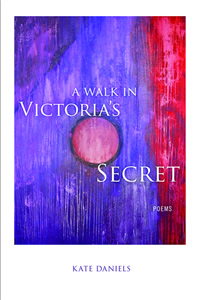 Daniels: Jeez, what am I “consciously trying to do with the line”? Just trying to keep it on the page and inside the frame of the poem, I guess! As a teenager, I went through a formal poetry writing stage, and that was enough for me. What I write is free verse, often very wild and unruly free verse. Two of the blurbs on Vic describe my “prosody” as a hybrid form combining poetry and memoir—which I sort of like. It is true that there are passages where I get iambically entranced, and that two-beat ghost you mention starts prowling around. But it’s also true that I get very nervous when too much metrical regularity imposes itself, and I have to get in there and break it up before it turns into a mob.
Daniels: Jeez, what am I “consciously trying to do with the line”? Just trying to keep it on the page and inside the frame of the poem, I guess! As a teenager, I went through a formal poetry writing stage, and that was enough for me. What I write is free verse, often very wild and unruly free verse. Two of the blurbs on Vic describe my “prosody” as a hybrid form combining poetry and memoir—which I sort of like. It is true that there are passages where I get iambically entranced, and that two-beat ghost you mention starts prowling around. But it’s also true that I get very nervous when too much metrical regularity imposes itself, and I have to get in there and break it up before it turns into a mob.
The most definite thing I could say about my prosody is that I value a storytelling approach at the beginning of a poem, and an ending that is very emotionally lush and sort of orchestral, if that makes sense. Maybe that’s the gathering-up-the-world impulse you asked me about earlier. My friend Liam Rector used to accuse me of gilding the lily at the end of all my poems. He taught me a lot about how to not go overboard with that big, exciting rush of emotion that strong closure can induce in certain kinds of poetry readers.
Chapter 16: Speaking of other writers helping you with your work, this collection is dedicated to three poets: Mark Jarman, Philip Levine, and Dave Smith. One of the poems, “Crowns,” is also dedicated to Philip Levine. It is no secret that writers inspire each other. I’m curious about how these three poets have affected your work on a practical level, such as editing—and on an abstract level, too.
Daniels: I think of these three men as my poetry fathers. For almost twenty years now, Mark Jarman has been a dear friend, close colleague, and a clear-eyed critic of my poetry, which is so different from his. He is one of the smartest people I know, and one of the finest poets. I have incredible respect for him in all ways, and I am always humbled by his regard for my poems.
I write about Philip Levine in the poem you mention, and how his poems about his early life in working-class Detroit, and his use of his own class rage in his poetry throughout his entire career convinced me, against all odds, that someone like me could aspire to writing poetry. I would never have had the courage to write my poems in the way that I write them without the inspiration of his example.
And Dave Smith, whom I first knew as colleague and senior poet-friend, has turned out to be my editor at LSU. His thorough, completely devoted approach to the vocation of poetry, his intensity as editor, and his brilliance as poet and critic: these have comprised one of the most marvelous blessings of my life as poet and educator.
Chapter 16: What does your immediate future look like?
Daniels: My third, and final, child is about to leave for college, so basically I’m concentrating on not having a nervous breakdown! The empty nest is not something I look forward to. I have loved having children in the house. I do seem to be writing a lot of poems right now in the wake of the publication of Vic, so that’s good. And I am fine-tuning a prose book, Slow Fuse of the Possible: On Poetry & Psychoanalysis, to submit to publishers. Hopefully, that will get me through the last months of my daughter’s full-time life at home. After that? Well, who knows? I haven’t been able to concentrate full-time on writing for a quarter of a century, so whatever it is, it will probably be interesting.
Kate Daniels will read from A Walk in Victoria’s Secreton November 17 in Nashville at Vanderbilt’s Buttrick Hall, room 102, at 7 p.m. The event is open to the public.

